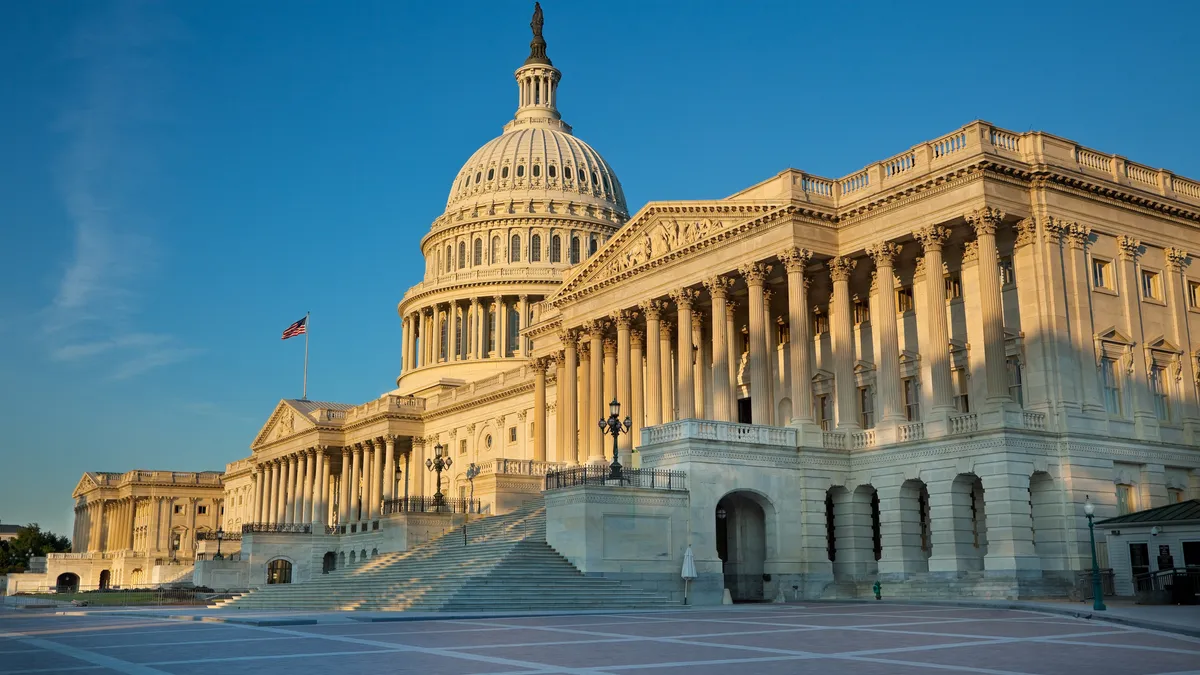Dive Brief:
- The surprise agreement reached this week by Sen. Joe Manchin (D-W.Va.) and Senate Majority Leader Chuck Schumer (D-New York) proposes a broad package with money for climate, energy and drug price control initiatives, raising $739 billion in revenue that would largely be funded by a 15% corporate minimum tax ($313 billion), increased tax enforcement ($124 billion) and the closing of the so-called carried interest loophole ($14 billion), according to a summary of the Inflation Reduction Act of 2022 from Senate Democrats
-
The plan, which comes after its predecessor Build Back Better package failed to win Senate approval last year, proposes no new taxes on small business and families making less than $400,000 but “billion-dollar companies or larger” will be hit with the new domestic corporate minimum tax “ensuring that America’s largest businesses are no longer able to operate for free in our economy,” Manchin stated in a release on his website.
-
The plan immediately drew opposition from the U.S. Chamber of Commerce, which warned Thursday the “legislation includes taxes that would discourage investment and undermine economic growth, and price controls that would limit American innovation. Both will make our economic problems worse.”
Dive Insight:
Earlier this year CFOs were warned by tax experts to be on the lookout for a renewed push for new or higher corporate taxes from President Biden’s administration based in part on a budget proposed in March that suggested a raise of the headline corporate tax rate to 28% from 21%.
On its surface, the latest plan that drew Manchin’s unexpected support appears to stop well short of the tax reform proposals that the administration has previously sought to push through. Most of the 40 tax increases that Democrats had seriously contemplated are not in the basic outline of the plan unveiled this week, according to a Politico report.
The plan’s outline does not appear to include the increase in the headline rate, the 1% excise tax on stock repurchases by publicly traded companies or the global corporate minimum tax that U.S. Treasury Secretary Janet Yellen has backed in an effort to shut down tax havens and curtail international tax competition.
But the potential impacts that businesses could face from the tax provisions that it does include are still raising some alarms. In addition to the Chamber of Commerce, the Washington, DC.-based Tax Foundation rejected the notion that as long as taxes exceed spending they will reduce inflation as too simplistic.
“After four rounds of interest rate hikes among many more expected...about half of forecasters are expecting a recession in the next 12 months,” William McBride of the Tax Foundation wrote. “In such conditions, it would be extremely unwise to raise taxes, especially the type of taxes advocated by this administration, which would do excessive harm to the economy.”












